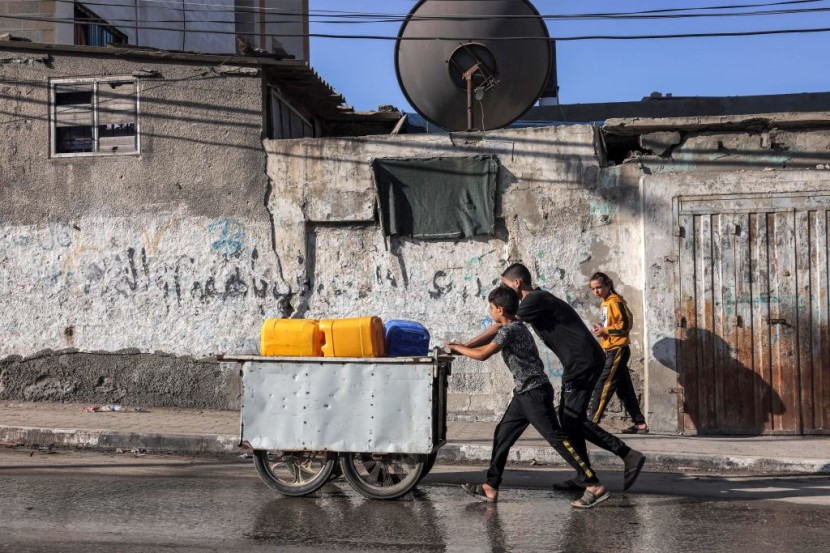Palestinians who heeded Israel's warnings to evacuate southern Gaza have waited in line for hours to collect the polluted water even though they fear it is destroying their health.
With water becoming more limited due to water and electricity limitations enforced by Israel, long lines of Palestinians waiting to fill their containers have become a common sight throughout the region.
None of the water lines from Israel to Gaza are functional. A pipe linking the southern cities of Rafah and Khan Younis is leaking, according to the United Nations.
Water Crisis

Only 5% of Gaza's water demands are being satisfied, according to the UN. This week, relief trucks arrived in the area from Egypt, and among the supplies they brought was enough water to last 15,000 people a day.
It is true that some residents in the territory's southern regions have been getting their water supply from desalination plants, but such facilities are only running at 40% capacity. No facilities are currently functioning in northern Gaza.
The situation is being eased somewhat by drawing on the well water supply, although this water is somewhat salty. James Elder, a spokesman for Unicef, said that salty water is the only option right now due to a lack of fresh supplies.
Since Israel began its blockade in 2007, residents of the Gaza Strip have had trouble getting enough to drink due to the contamination of their groundwater supplies. After Hamas strikes last month, Israel tightened the isolation of Gaza, which has only made matters worse.
The inability to pump water to households and carry it on trucks is a direct result of a shortage of fuel, which has also hampered the operation of desalination facilities. Fuel shortages also mean sewage treatment facilities have not been running, resulting in wastewater pouring into the sea, further damaging the coastal aquifer.
Sentiments From Residents
In a report by the Guardian, a teacher named Eman Basher complained on social media that her kids had not been feeling well since they left their Gaza City home.
"My kids have been suffering from stomach flu with symptoms including abdominal cramps, vomiting, and diarrhoea, which I always assumed is the normal result of sleeping on the floor or change of weather, just to learn that it is caused by contaminated water we drink daily and queue for hours to get," Basher stated. She said that they have been using this water for the last 15 days.
Maysoun Owda, who has been taking refuge in the UN school in Khan Younis, has remarked that most of the water that runs in the strip is polluted. Reportedly, the refugees rely on contaminated water sources since the United Nations Relief and Works Agency for Palestine Refugees (UNRWA) does not provide clean water to the shelters.
Izzeddin Jarbou, a Palestinian from southern Gaza, said, "People go to any place they think might have water and wait for hours in long queues until they are able to find water that's safe to drink and wash with."








